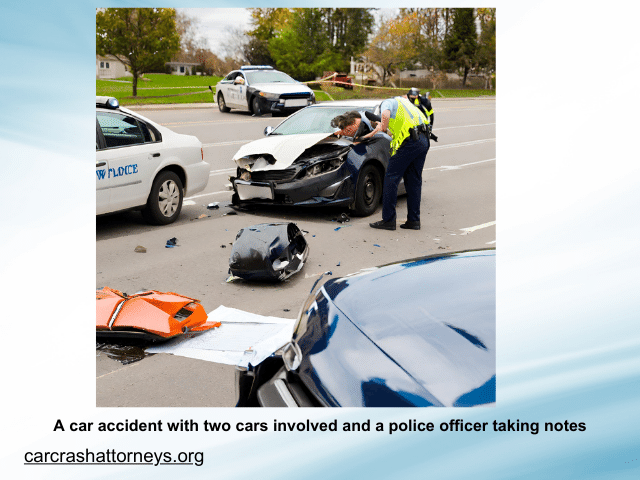Can You Fight an At-Fault Accident You Think Is Unfair
Picture this: you’ve been involved in a car accident, and the insurance company has determined that you’re the at fault driver. You’re certain the other driver shares responsibility, but can you fight an at-fault accident? In this comprehensive guide, we’ll walk you through the process of fighting an at-fault accident, from challenging the initial determination to working with a car accident lawyer. So buckle up and let’s dive in!
Key Takeaways
Know your rights and responsibilities in a car accident to ensure an effective dispute.
Gather evidence, review insurance policies, and interact professionally with adjusters when disputing fault.
Consider hiring a lawyer for legal representation if the process becomes complex.
Can You Fight an At-Fault Accident Determination?
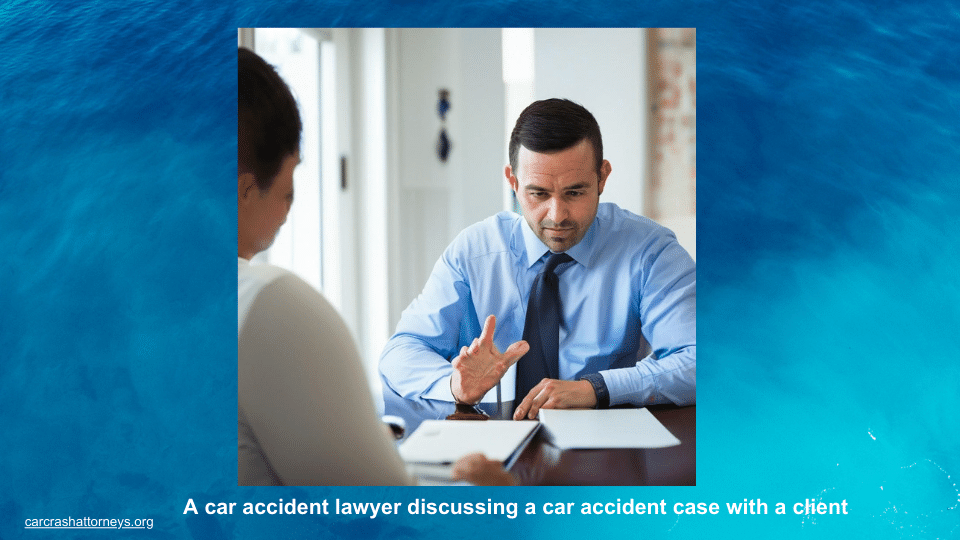
Being assigned the at fault driver in a car crash can have serious consequences, from increased insurance premiums to potential legal liabilities. But what if you disagree with the insurance company’s decision regarding the at fault driver in car accidents? In such cases, you may consider filing a liability claim to dispute car accident fault.
Fortunately, disputing fault is permissible, and this could lead to a fair settlement. Challenging an at-fault accident determination involves knowing your rights, gathering crucial evidence, and reviewing your insurance policies.
Can You Fight an At-Fault Accident Finding – Know Your Rights to Decide
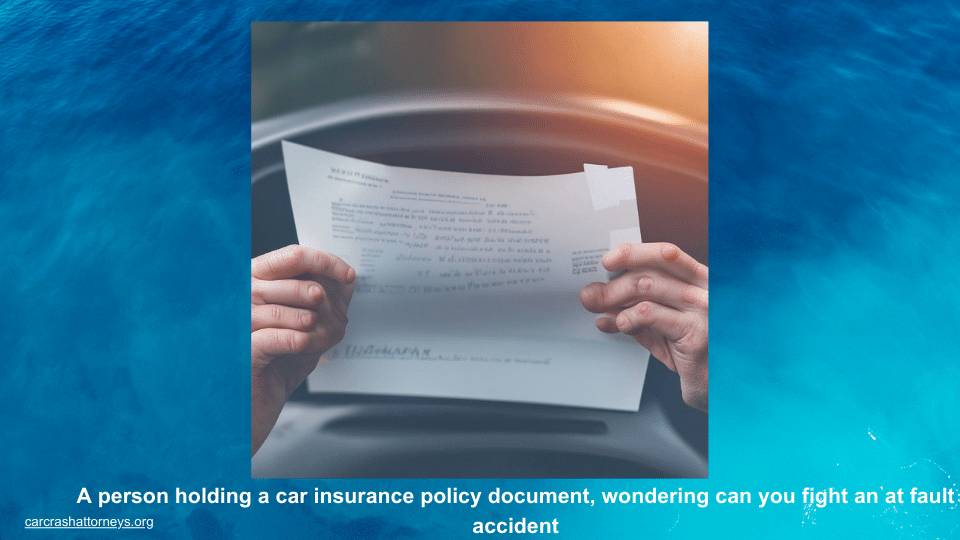
The first step in disputing fault is understanding your rights and responsibilities in a car accident. Depending on the laws of your state, you may be obligated to compensate the other driver for their losses if you’re deemed at fault. However, if you believe you’re not entirely responsible, you have the right to dispute car accident fault and present evidence to support your claim.
Familiarizing yourself with state-specific laws and consulting a legal professional is vital for an effective navigation of this process.
Gather Crucial Evidence
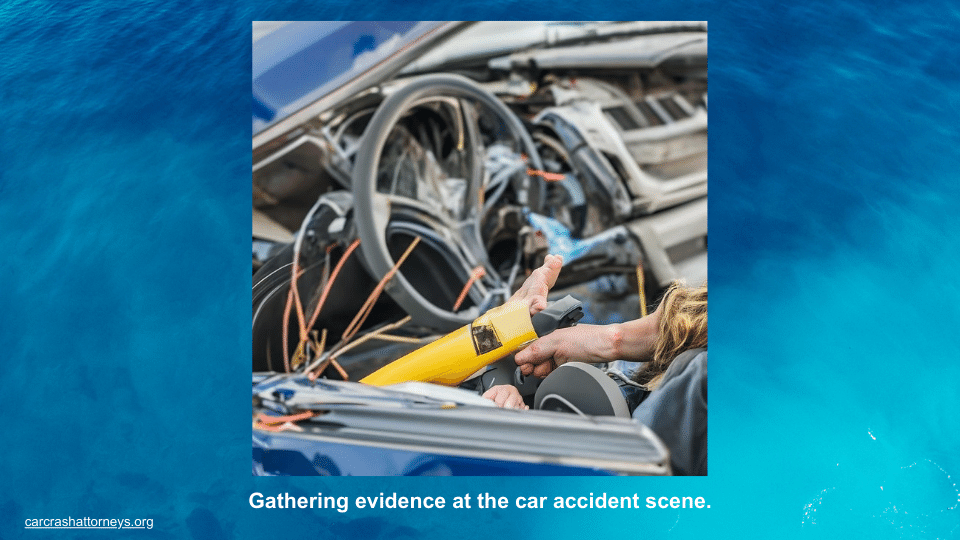
To build a strong case, gathering evidence is of the utmost importance. This should start at the accident scene itself. Here are some steps to follow:
Take photographs of the damage to both vehicles.
Take photographs of the road conditions, any traffic signs or signals, and any accident debris.
Collect names and contact information of any witnesses, as witness statements can be invaluable in supporting your claim.
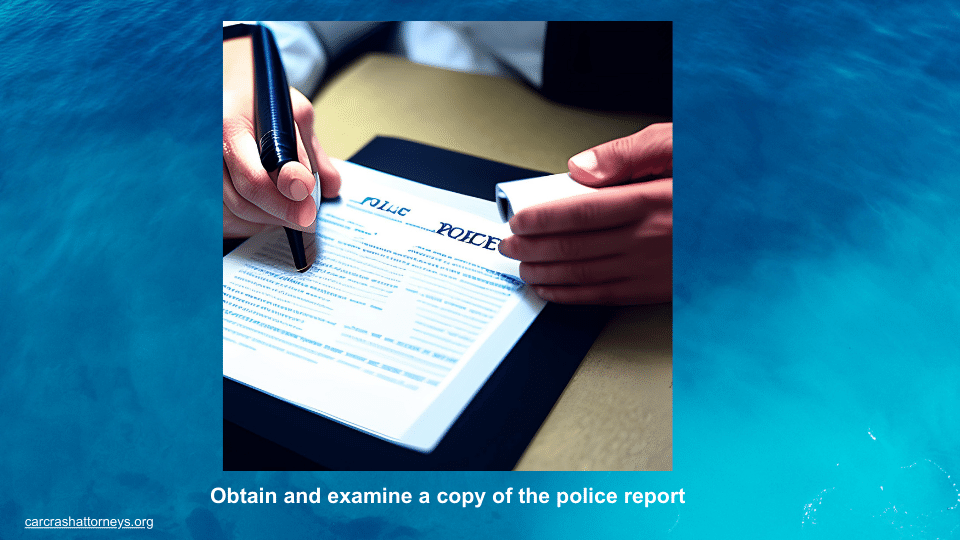
Don’t forget to:
Obtain a copy of the police report, as insurance adjusters heavily rely on it.
Seek professional medical treatment and gather relevant medical records if you sustained injuries.
Gather all this evidence to help you make a compelling argument that you’re not solely responsible for the accident.
Review Insurance Policies
A further key step in the process is to dispute fault by reviewing both your insurance policy and that of the other driver’s insurance company. This will help you determine the coverage and potential compensation available. Be sure to examine any language related to fault determination, liability coverage, and other relevant clauses.
Understanding the nuances of both policies can play a crucial role in the outcome of your dispute.
Can You fight An At-Fault Accident By Navigating the Dispute Process with Insurance Companies
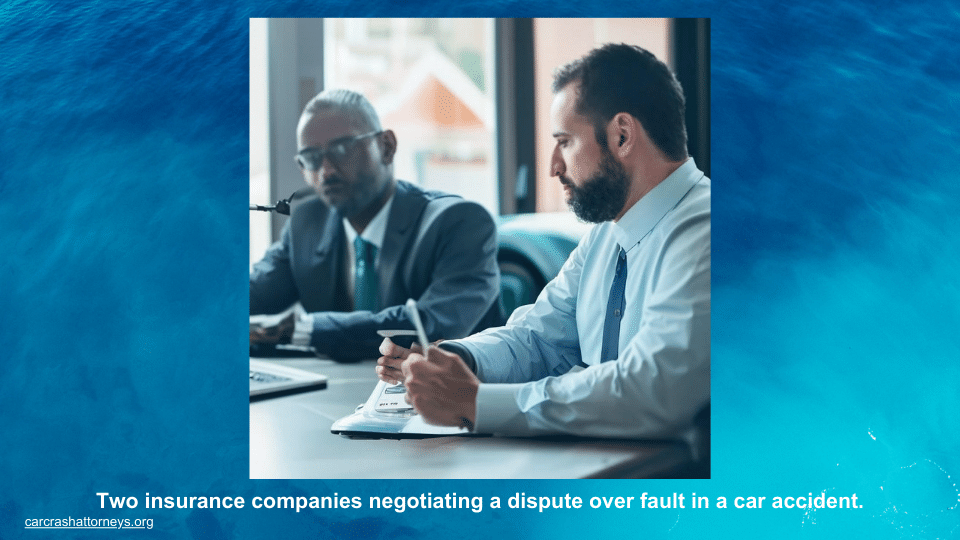
Car insurance companies tend to be notorious for their complex processes and bureaucratic hurdles. While successfully navigating the dispute process with your own insurance company can be challenging, it is necessary to secure a fair outcome.
The key steps in this process involve initiating the dispute, handling the insurance adjuster, and appealing any unfavorable decisions.
Initiating the Dispute
Initiate the dispute process by communicating – both orally and in writing – your disagreement with your insurance company’s conclusion of fault. Provide them with the evidence you’ve gathered to support your claim.
Be cautious when giving information, as it will be stored in a file that could be used in future legal proceedings. Document and retain copies of all interactions with the insurance company, as these can be crucial in any subsequent legal action.
Handling Insurance Adjusters
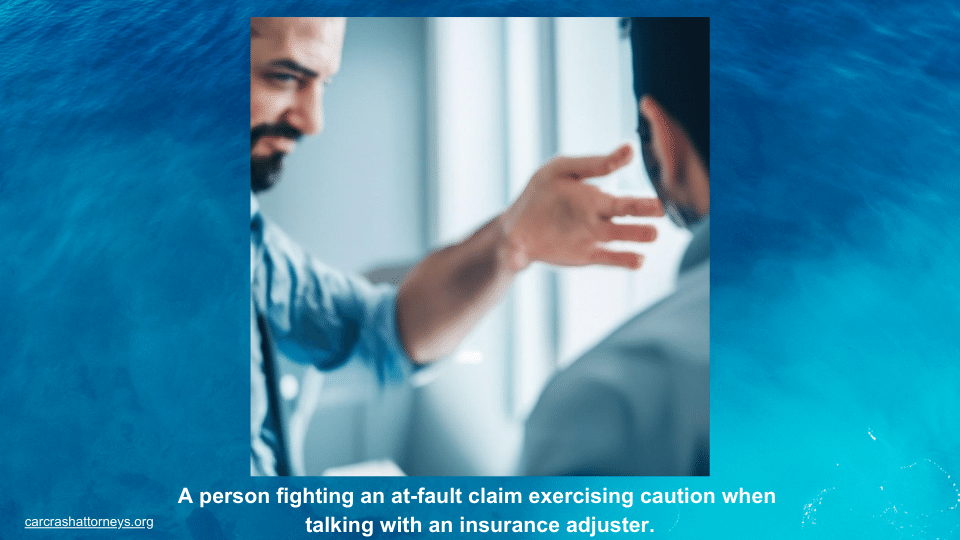
Interacting with the insurance adjuster, who is responsible for evaluating claims and deciding the compensation amount, can be intimidating. It’s essential to approach interactions with adjusters professionally and cautiously. Avoid providing unnecessary information or making statements that could be used against you.
Remember that the adjuster’s primary goal is to minimize the amount paid out by the insurance company, so be prepared to defend your position assertively.
Appealing the Decision
You possess the right to appeal should the insurance company’s decision be unfavorable. This may involve providing additional evidence or engaging a third-party mediator to review the case.
Consider involving a car crash attorney, especially if the dispute process becomes complex or overwhelming. A skilled attorney can provide guidance and support in navigating the legal process and maximizing your chances of a favorable outcome.
Amending the Police Report
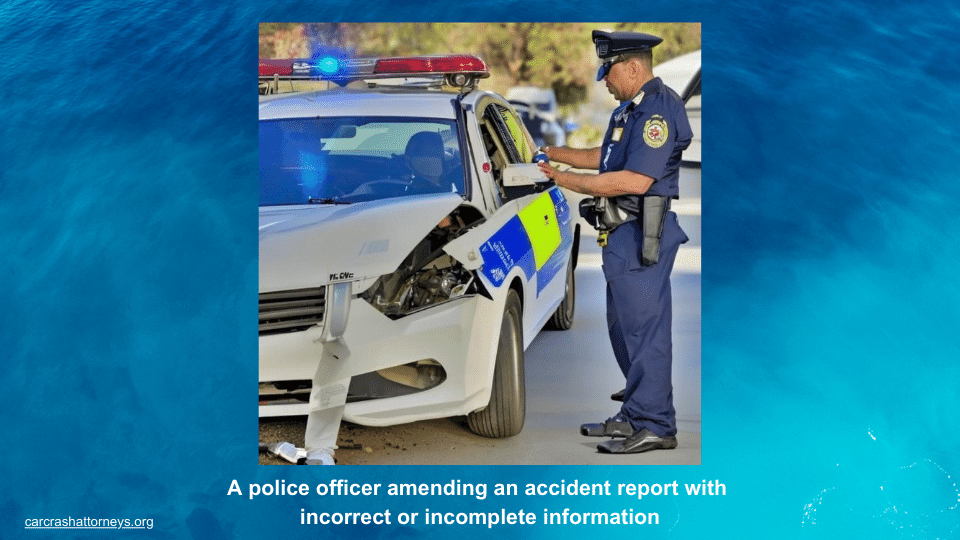
The police report is a vital piece of evidence in disputing fault. However, it’s possible that the report contains inaccuracies or omissions that could affect the fault determination.
Strengthening your case can involve amending the police report, which encompasses identifying errors, requesting corrections, and employing the amended report in your dispute.
Identifying Errors
Identifying any errors in the police report involves a careful review of the document for inaccuracies or omissions that may influence fault determination. These can include factual errors, incorrect information, or missing details.
Take note of any discrepancies and gather evidence to support your claim for correction.
Requesting Corrections
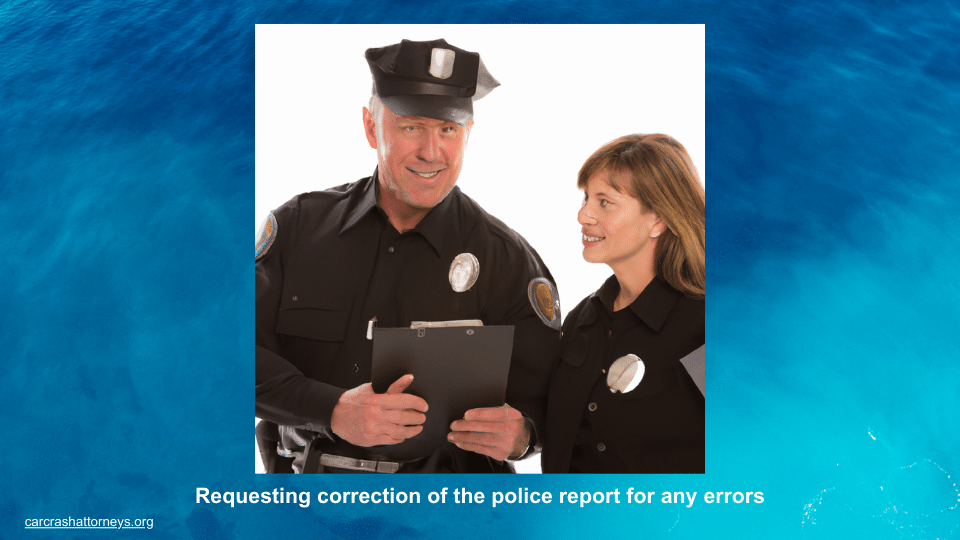
Upon identifying any errors, reach out to the investigating officer mentioned in the report and rectify the inaccuracies. Provide them with the evidence you’ve gathered to support your request.
Ensure that your request is made in writing and follow up with the police department to ensure that your request is being processed.
Utilizing the Amended Report
Your case can significantly benefit from an amended police report. Use the corrected report as evidence in your dispute with the insurance company, demonstrating that the initial determination of fault was based on erroneous or incomplete information.
This can be a powerful tool in securing a favorable outcome.
Addressing Traffic Tickets and Citations
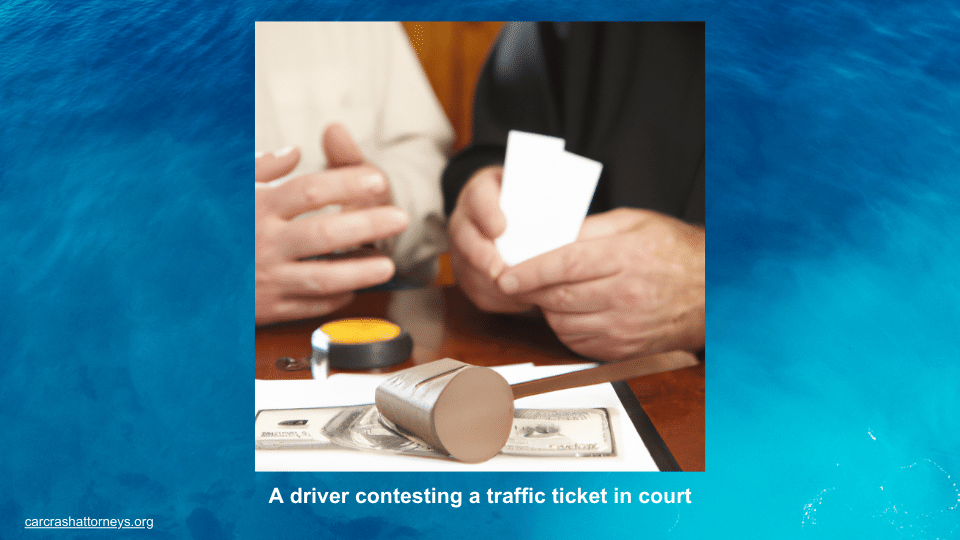
The receipt of a traffic ticket or citation associated with the accident can add complexity to the fault determination process. However, contesting the ticket can demonstrate your commitment to disputing the car accident fault and protecting your rights.
In this section, we’ll discuss how to contest the ticket and understand its impact on fault finding.
Contesting the Ticket
In case of receiving a traffic ticket post-accident, contesting it in court is recommended. This shows your dedication to disputing liability and preserving your rights.
Prepare for your court date by organizing your evidence and researching relevant laws. Present your case confidently and challenge the officer’s conclusions and evidence.
Impact on Fault Finding
The action of contesting a traffic ticket can considerably influence fault finding. Successfully fighting the ticket can help demonstrate that you’re not responsible for the accident, potentially swaying the insurance company’s decision in your favor.
Be prepared to defend your position and present evidence to support your claim.
Working with a Car Accident Lawyer
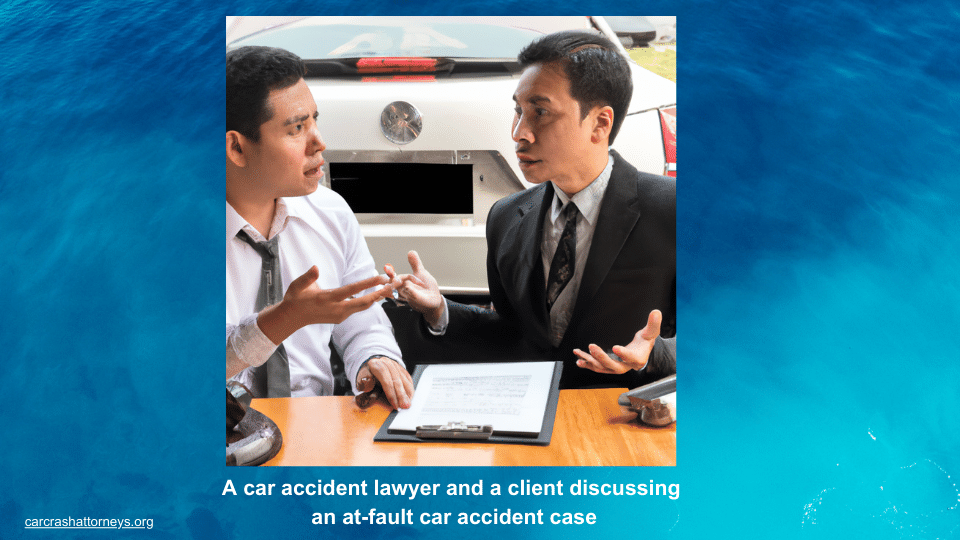
Engaging a car accident lawyer could significantly shift the dynamics when disputing fault in a car accident. A skilled attorney can guide you through the process, ensure your rights are protected, and maximize the amount of compensation you receive.
In this section, we’ll discuss when to hire a lawyer and how to choose the right attorney for your case.
When to Hire an Attorney
Consider hiring a car accident attorney when the processes of disputing fault, interacting with insurance companies, or pursuing car accident injury claims become intricate or daunting. An experienced attorney can navigate the legal system, negotiate with insurance adjusters, and represent you in court if necessary.
Don’t hesitate to seek legal counsel if you feel out of your depth or if your case involves severe injuries and substantial financial compensation.
Choosing the Right Attorney
Choosing an appropriate car accident attorney could significantly impact the outcome of your car accident case, including the potential success of a personal injury lawsuit. Look for an attorney with experience in personal injury law, a solid reputation, and a proven track record of success.
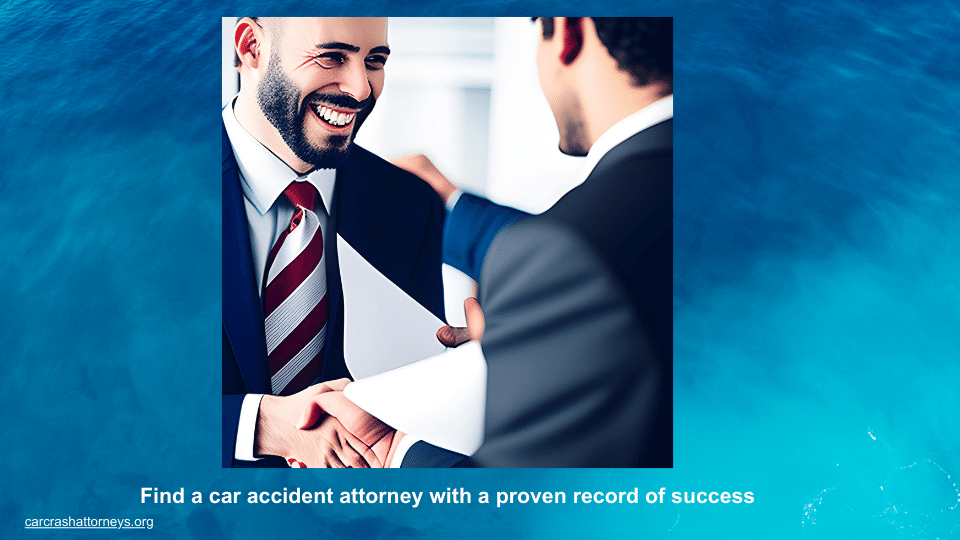
Research potential lawyers online, prioritize accessibility and communication, and ask for recommendations from friends and family. Schedule an in-person interview with each attorney to evaluate their experience, resources, skills, and reputation before making a decision.
Summary
Disputing fault in a car accident can be a challenging and complex process. By understanding your rights, gathering evidence, working with insurance adjusters, and seeking legal counsel when necessary, you can increase your chances of a favorable outcome. Remember, the key to success lies in being proactive, organized, and persistent in your pursuit of justice. Stand up for your rights, and don’t let an unfair fault finding dictate your future.
Frequently Asked Questions For Can You Fight An At-Fault Accident
Is it bad to admit fault in an accident?
Admitting fault in an accident is not always bad – it shows responsibility, honesty and integrity. However, you should speak to car accident lawyers before admitting fault as the insurance company has legal obligations if you do so.
Can you claim even if it was your fault?
Yes, you can file an auto insurance claim even if the accident was your fault; your policy provides coverage for both at-fault and not-at-fault accidents. However, filing a claim when you are at fault may result in an increase in your premiums. It is important to understand the implications of filing a claim before doing so.
What happens if you are at fault in a car accident in Florida?
If you are at fault in a car accident in Florida, you may still be able to recover damages due to the state’s “pure comparative negligence” system. Under this system, a person can still recover damages even if they are partially at fault for the accident. The amount of damages they can recover is reduced by the percentage of fault attributed to them.
How do I appeal an at fault accident in Massachusetts?
To appeal an at fault accident in Massachusetts, complete the Appeal Form located on the reverse side of the Notice of At-Fault Accident Determination and enclose a $50 check or money order made payable to the Commonwealth of Massachusetts. Submit your appeal within 30 days of the date of the notice.
How do I argue an auto insurance claim?
Contact the insurance company and the agent on your case to begin the process of arguing an auto insurance claim. Most insurers have an internal appeals process to dispute decisions deemed wrong or unfair.
Further Reading: Parties that can be at-fault
Legal Disclaimer: The content provided on carcrashattorneys.org is for general informational purposes only. It is not intended as legal advice, nor does it constitute an attorney-client relationship. The information may not be accurate, complete, or updated when viewing. Carcrashattorneys.org and its authors disclaim all liability for any actions taken or not taken based on the content of this site. Always consult with a licensed attorney in your jurisdiction before making any legal decisions. This website may contain links to other websites. We are not responsible for the content, accuracy, or opinions expressed in such websites, and such websites are not investigated, monitored, or checked for accuracy or completeness by us.

